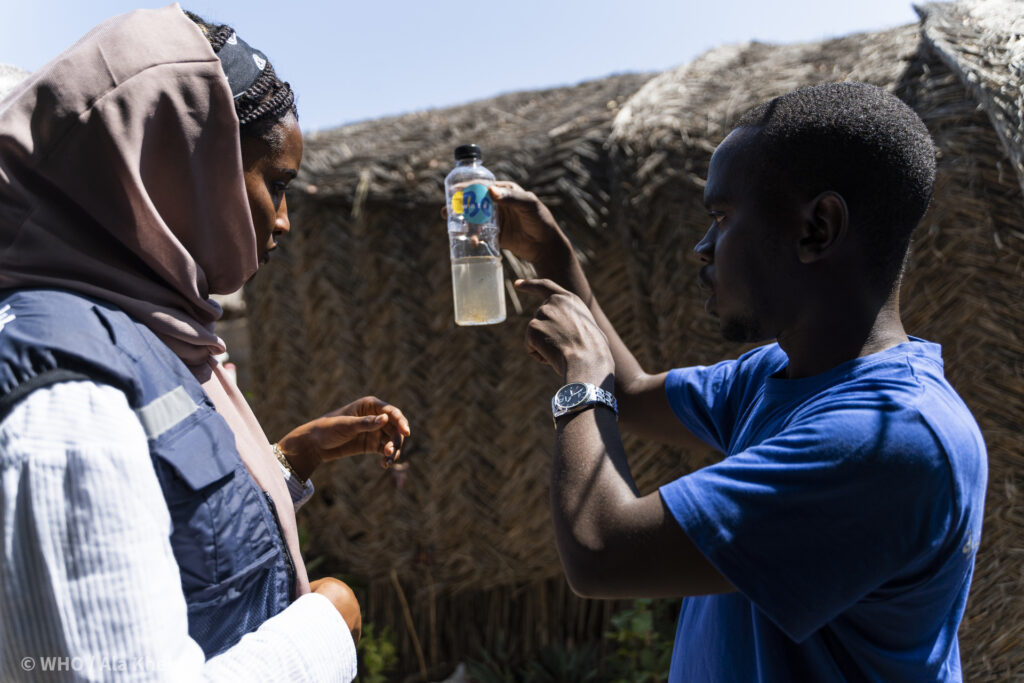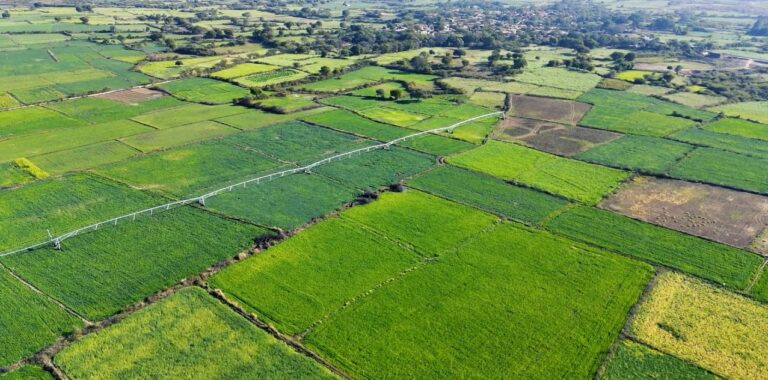
WHO and the state Ministry of Health work together with a cholera Rapid Response Team to monitor cholera in Gedarif, Sudan. Photo: © WHO / Ala Kheir
Geneva: Humanitarian needs across Sudan are at record highs with 24.8 million people, or every second person, needing humanitarian assistance in 2024. This is 9 million more than in 2023, according to the World Health Organization’s report titled ‘Public Health Situation Analysis: Sudan conflict’, which was released here today.
The report says that the number of people displaced by the conflict continues to increase, with 8.1 million people fleeing their homes in Sudan. Approximately 6.3 million people are displaced within Sudan and another 1.8 million people fled abroad.
Since the outbreak of the current conflict in mid-April 2023, at least 14,600 have died and 33,000 have been injured (although establishing accurate numbers of civilian casualties has been challenging). Most civilian deaths have been the result of the use of heavy weaponry in densely populated areas, with women and children constituting a significant proportion of the casualties reported.
Disease outbreaks are increasing in the face of disruptions of basic public health services, including vaccination, disease surveillance, functions of public health laboratories and rapid response teams. In addition, insecurity, displacement, limited access to medicines, medical supplies, electricity, and water continue to pose enormous challenges to delivering health care across the country. Outbreaks are ongoing in several states, including cholera, measles, malaria, poliovirus type 2 (cVDPV2) and dengue fever.
The ongoing conflict has intensified weaknesses in the health system, with massive destruction of healthcare infrastructure, especially in Khartoum and the Darfur region.
People have been forced to flee their homes due to the dire humanitarian situation and the destruction of essential infrastructure, such as roads, hospitals, medical facilities, and schools, as well as power, water, and communications services.
About 65% of the population lack access to healthcare and between 70 – 80% of health facilities are not functioning due to the ongoing conflict as of February 2024 (OCHA). This is an increase from December 2023, when HeRAMS was undertaken in five states (Khartoum, Kassala, Red Sea, White Nile and Gedaref) and found that 45% of health facilities are fully functional, 10% are partially functional and 45% are non-functional.
The situation is particularly dire for internally displaced persons (IDPs), as only 2% of them have undeterred access to health care. The WHO Surveillance System for Attacks on Health Care (SSA) indicates that 62 attacks on health care have been reported since the onset of the violence on April 15, 2023.
“The situation in Sudan is therefore a perfect storm, as the health system is barely functional, the childhood immunization programme has broken down for most crisis-affected people, and infectious diseases are spreading,” the report says.
The latest food security analysis projected 17.7 million people in Sudan (37% of the population) to face high acute food insecurity (IPC Phase 3+) between October 2023 and February 2024. Nearly 18 million people are acutely food insecure (IPC 3+), a dire record during the harvest season; and almost half of children are acutely malnourished. More than 710,000 children are expected to face severe acute malnutrition (SAM) in 2024, representing the highest number of people in need of nutrition assistance ever recorded in Sudan. Without intervention, the number could rise to 3.5 million people before the end of 2024.
Various challenges have been affecting the delivery of humanitarian assistance in many parts of the country, including insecurity, looting, bureaucratic impediments, poor network and phone connectivity, lack of cash, and limited possibility of having technical and humanitarian staff on the ground. Fuel shortages also affect the movement of humanitarian staff and supplies and the generation of power needed for operations (maintaining cold chain storage, supplying water, providing health care etc). Internet and communication network outages across Sudan began on February 2, 2024, leaving an estimated 65% of the country without network access.
In recent months, Sudan has faced significant challenges due to ongoing and new clashes in different parts of the country. Safer areas have become overcrowded, contributing to the spread of diseases and fierce competition for necessities such as water and pasture. The widespread destruction and displacement have severely impacted the economy, causing overwhelming food insecurity in some regions. Additionally, the risks of civil and tribal wars increased, fuelled by the proliferation of weapons, tribalism, and racial discrimination.
Research by Search for Common Ground revealed various significant effects from clash incidents, with economic disruptions and infrastructure destruction being the most reported consequences, cited by 33% of respondents. Displacement of people (IDPs, refugees) and the loss of lives or injuries were also noted as critical impacts, reported by 20% and 16% of respondents, respectively. Furthermore, 26% of respondents mentioned social divisions or mistrust as significant outcomes.
– global bihari bureau





